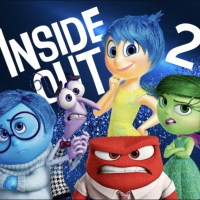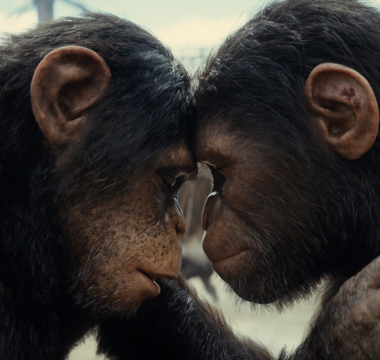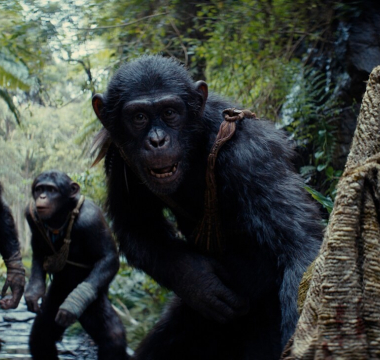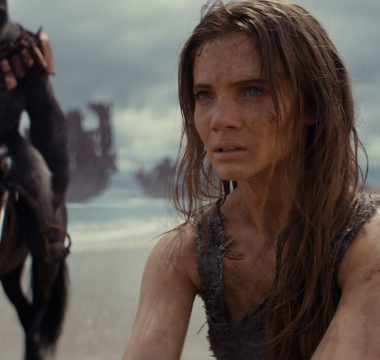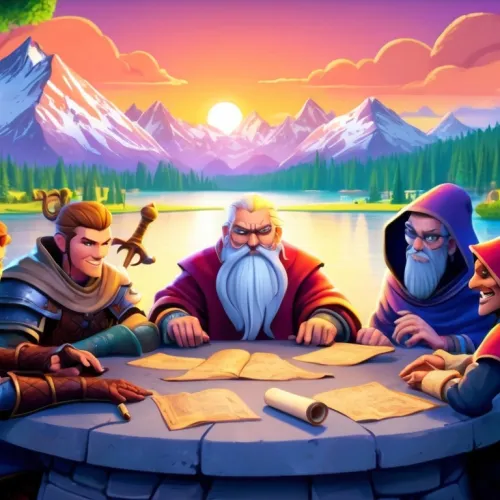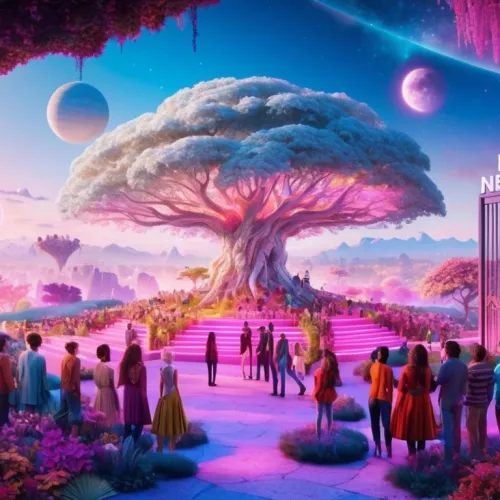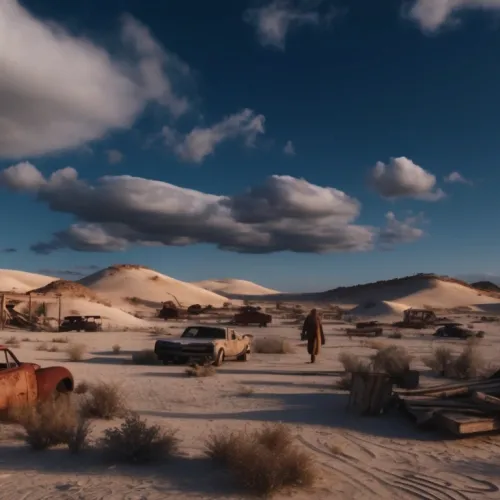A Riveting Reboot
When I heard about the release of "Kingdom of the Planet of the Apes," directed by Wes Ball, I was eager to see where the franchise would go. The movie, a standalone sequel in the widely acclaimed reboot series, unfolds 300 years after the events of "War for the Planet of the Apes." With a robust cast including Owen Teague, Freya Allan, Kevin Durand, and William H. Macy, the bar was set high.
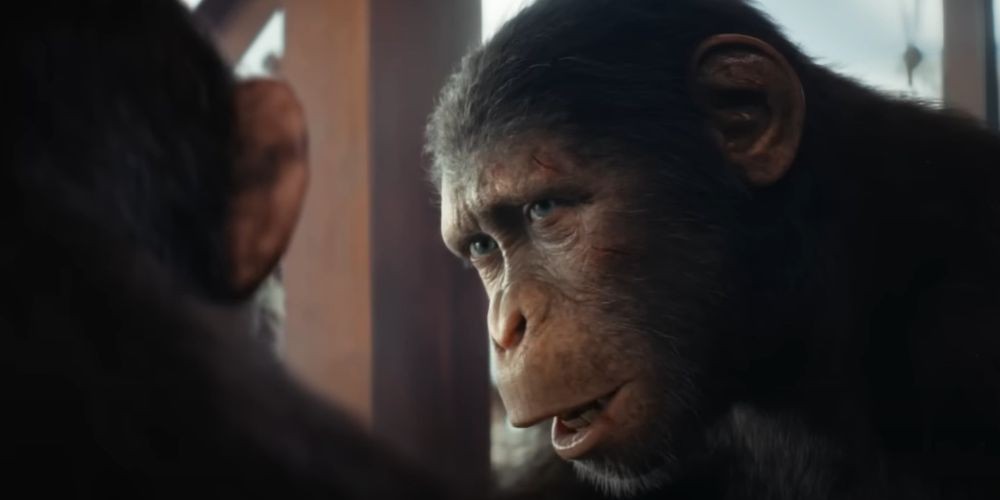
Compelling World-Building
The first thing that struck me about the movie was the depth of its world-building. The film transports viewers to a future where apes have developed numerous clans, each with unique practices and cultures. The monumental timespan and environmental changes give the world a lived-in feel that surpasses its predecessors, creating a rich tapestry of lore and inter-species dynamics.
Engaging Protagonist
Owen Teague's portrayal of Noa, a young chimpanzee from a clan that practices falconry, was a standout. Noa's struggle for survival and leadership following a personal tragedy provides the film with strong emotional underpinnings. His journey of self-discovery and the responsibility of leading his clan against external threats rooted me emotionally to the storyline.
A Rich Supporting Cast
Freya Allan as Mae, a human with her own secretive agenda, is captivating. The character’s complexity and motivations add layers to the narrative. Kevin Durand as Proximus Caesar, the self-proclaimed king with ambitious plans for ape supremacy, offers a chilling antagonist whose perversion of Caesar’s legacy presents a compelling conflict.
Visual Splendor
The film’s visual effects deserve special mention. The apes, rendered with breathtaking realism by Wētā FX, often blur the lines between CGI and reality. The natural landscapes and decayed human structures are intricately detailed, further immersing viewers in this post-human world. Director Ball's choice to film on location, rather than relying solely on CG backdrops, adds authenticity and grit to the scenery.
A Tale of Survival
The plot revolves around Noa's quest to save his clan after they are enslaved by Proximus Caesar. Alongside him are Raka, an orangutan who introduces Noa to Caesar’s teachings, and Mae, whose knowledge of ancient human technology becomes crucial. The trio’s journey is filled with peril, both from relentless ape raiders and the rugged terrain.
Moral Complexity
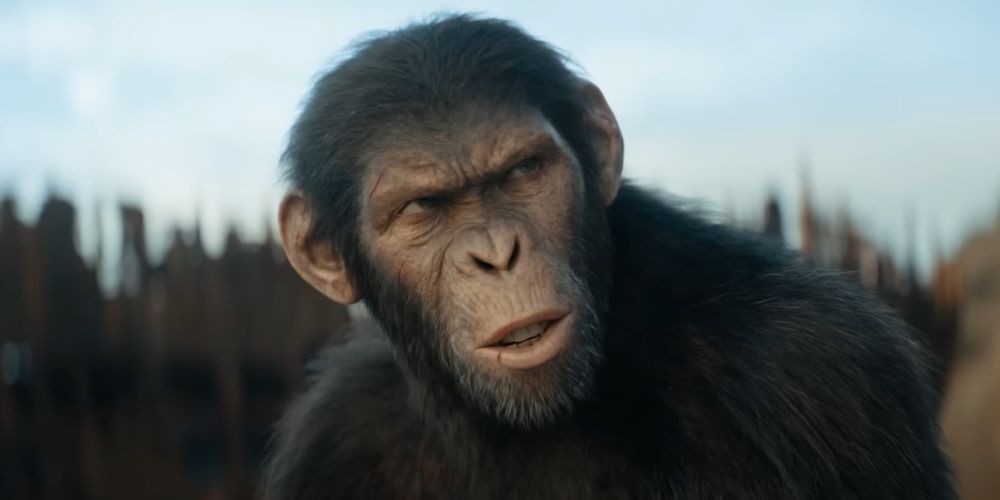
The film skillfully delves into moral complexities. Mae’s dual agenda, revealing a "book" capable of restoring human speech, raises questions about trust and alliance. The themes of legacy, technological rediscovery, and power dynamics between species are thoughtfully explored, making the narrative not just an action-packed adventure but a thought-provoking saga.
Action-Packed Sequences
The action sequences are well-executed and provide heart-pounding moments throughout. From tribal clashes to unexpected ambushes, the choreography and pacing ensure that viewers are constantly on edge. The climactic battle at the beachfront settlement, laden with emotional stakes and explosive outcomes, is particularly memorable.
Strong Performances
Every actor contributes significantly to the film’s emotional depth. Owen Teague’s portrayal of Noa’s transformation from a naive chimp into a determined leader is compelling. Kevin Durand’s Proximus Caesar, ambitious and manipulative, makes for a formidable villain. Freya Allan’s Mae is both vulnerable and strong, proving pivotal to the story.
Symbolic Undertones
The movie also offers rich symbolic undertones. The rediscovery of human technologies and the apes' varied responses to it can be seen as a metaphor for the cycles of civilization and the burden of historical precedence. The movie makes the audience think about the use of technology and the cycles of power and decline.
Cultural Commentary
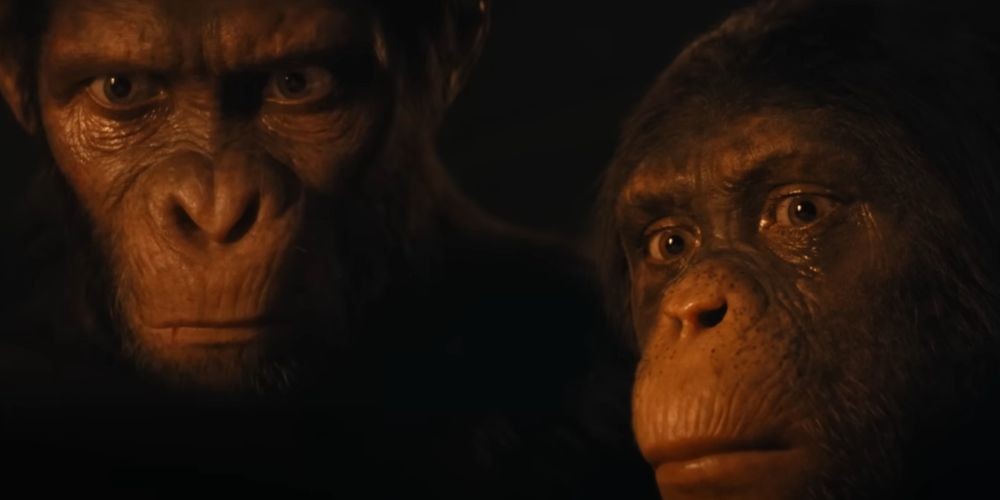
Beyond its action and adventure, "Kingdom of the Planet of the Apes" serves as a cultural commentary on the potential future interactions between species if one were to rise above the other. It subtly critiques current societal structures and the use of historical narratives to justify present actions.
Seamless Integration of Technology and Narrative
The integration of CGI with live-action shots is seamless, setting a new benchmark for the franchise. The visual flow of computer-generated apes interacting with their environment feels organic, enhancing the film’s narrative without overpowering it.
Music that Resonates
John Paesano's score is another highlight. Blending Jerry Goldsmith’s original themes with fresh compositions, the music elevates the film's emotional and dramatic scenes. The soundtrack is both nostalgic and new, creating an auditory experience that complements the visuals.
The Emotional Impact
Emotionally, the film packs a punch. The relationship between Noa and Mae offers moments of genuine tenderness against the backdrop of their tumultuous journey. Noa’s internal struggle and eventual realization of his leadership capabilities are moving, making his character arc particularly satisfying.
A Climax to Remember
The film’s climax, involving a spectacular showdown with Proximus and the reclamation of Noa’s clan, is intense and satisfying. The use of eagles, reminiscent of Noa’s clan’s falconry practices, ties nicely into the storyline and highlights his growth as a leader capable of uniting different elements of his world.
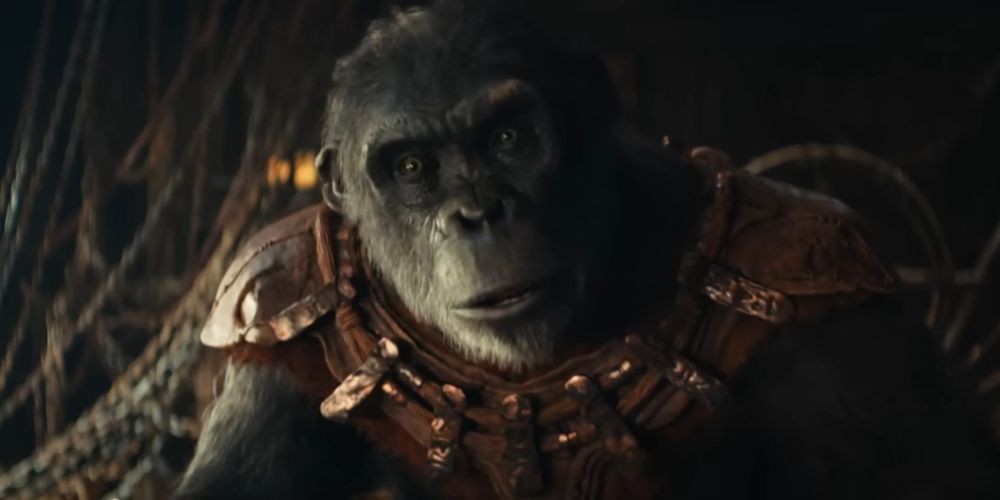
Room for More
While the movie stands on its own, it leaves room for future installments. The tantalizing glimpse of what Noa, Mae, and Soona see through the telescope, kept ambiguous by Ball, hints at broader narratives waiting to unfold.
Final Thoughts
In summary, "Kingdom of the Planet of the Apes" is a compelling addition to the franchise. Its blend of rich world-building, strong performances, and breathtaking visuals make for an engaging cinematic experience. Despite minor flaws, it succeeds in exploring complex themes and setting the stage for more stories in this fascinating universe.
Pros and Cons
Pros:
- Exceptional visual effects;
- Strong performances, especially by Owen Teague and Kevin Durand;
- Thought-provoking themes and moral complexities;
- Action sequences that keep viewers on edge;
- Engaging in world-building and cultural commentary.
Cons:
- Some human characters feel underdeveloped;
- Pacing can be slow at times;
- Tendency to lay too much groundwork for future sequels.




